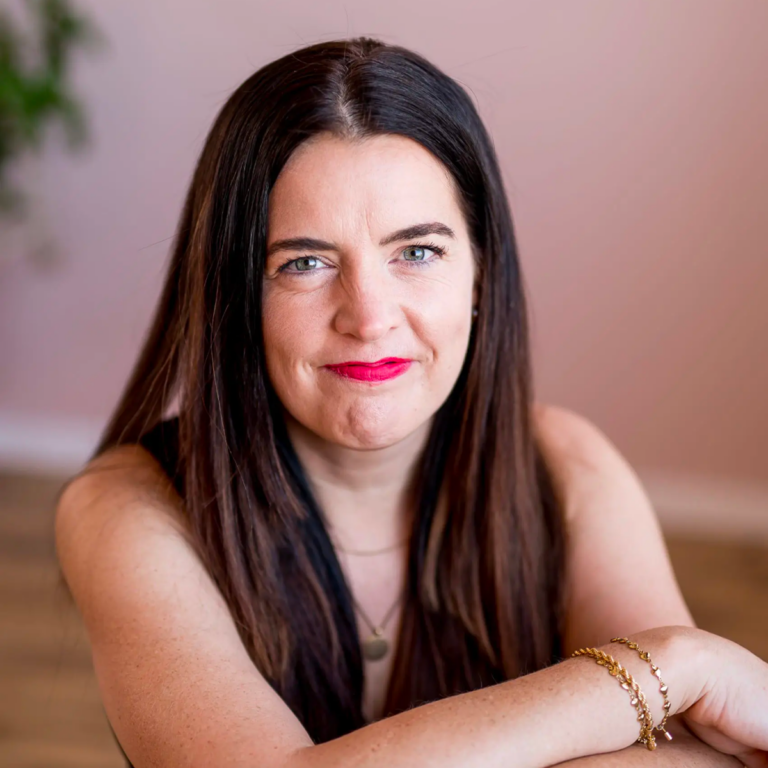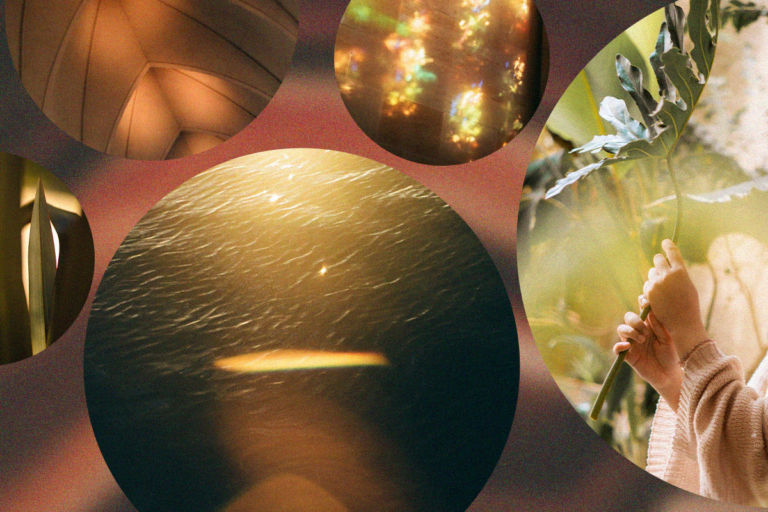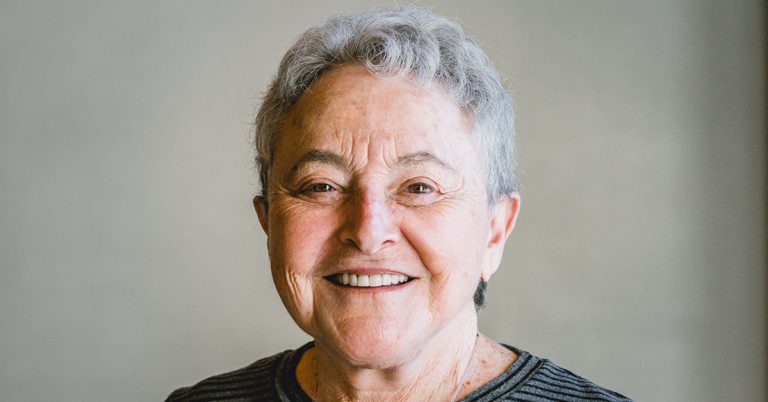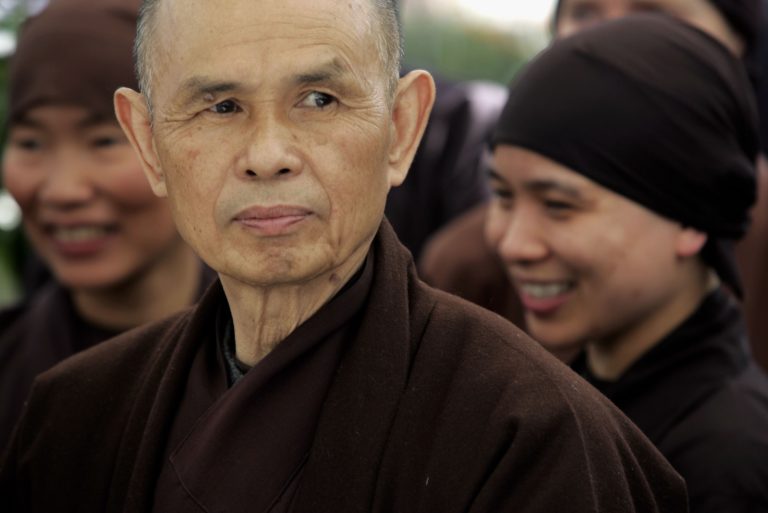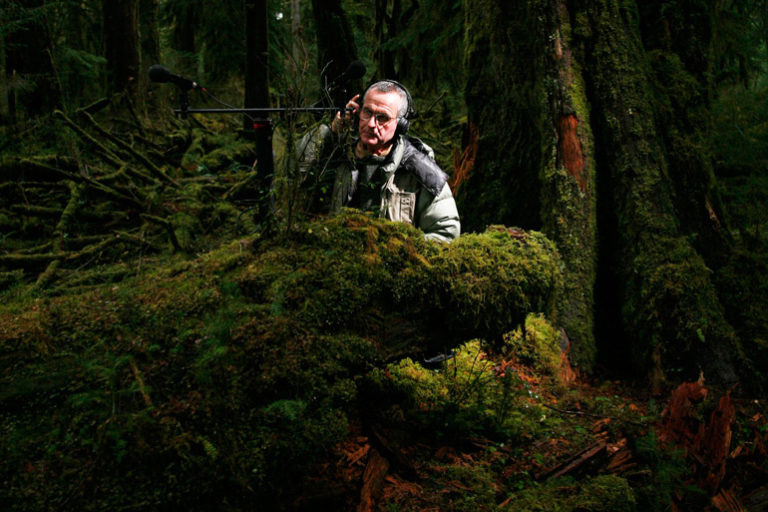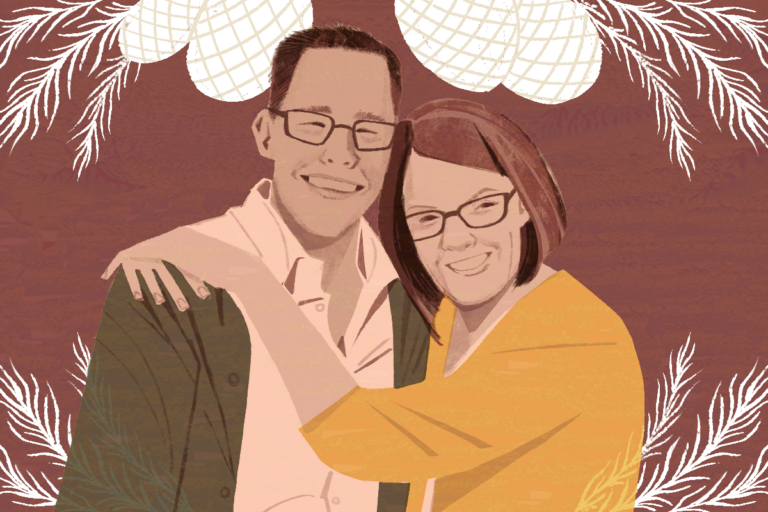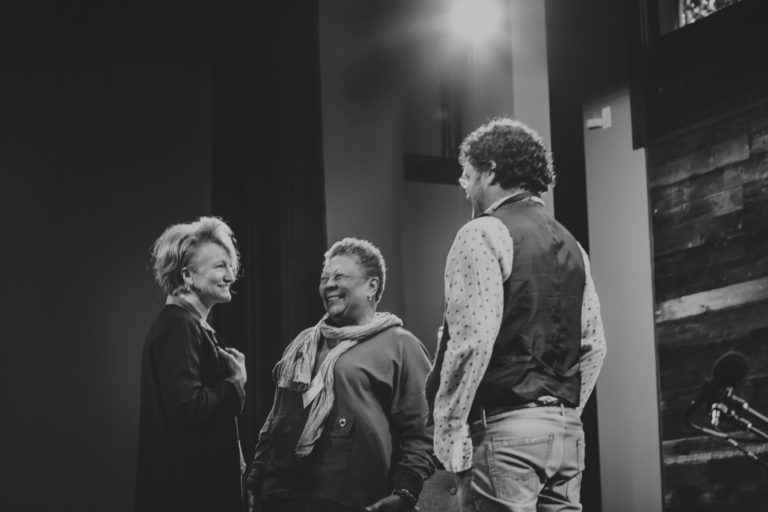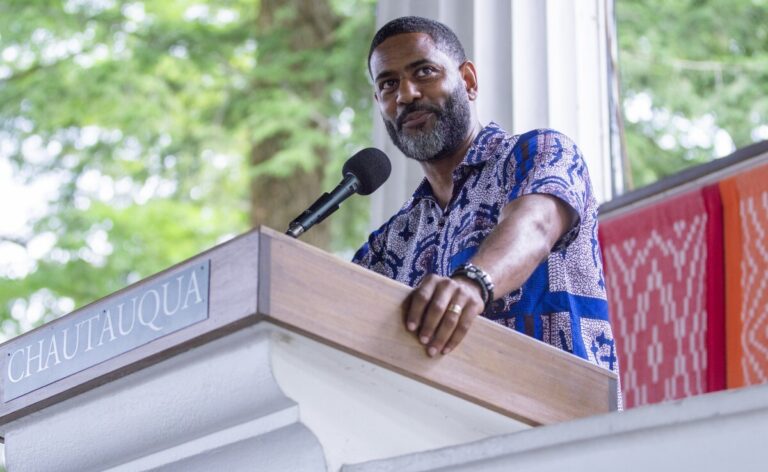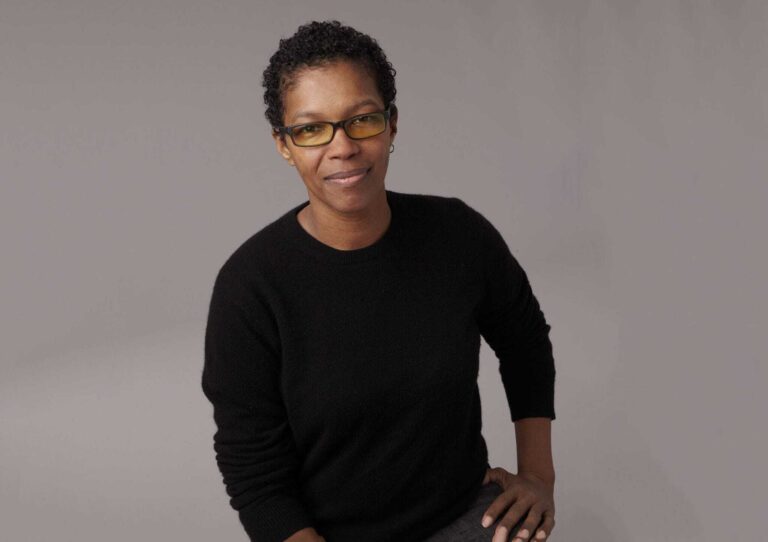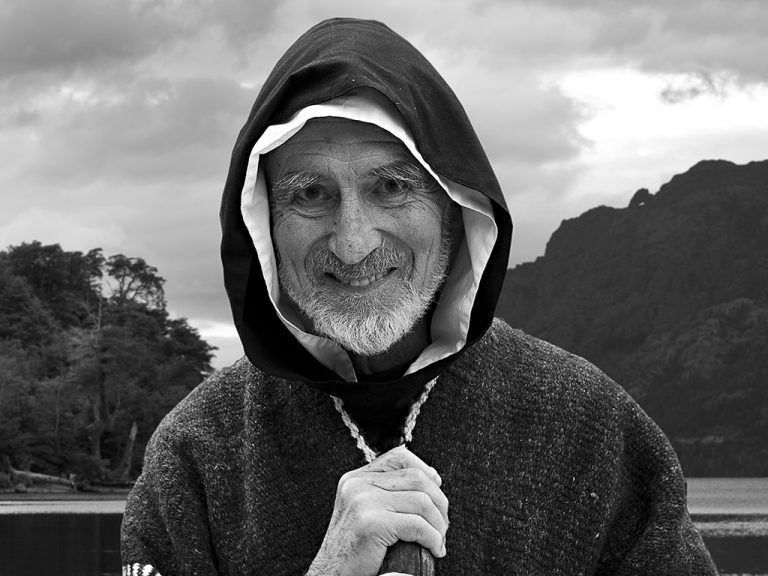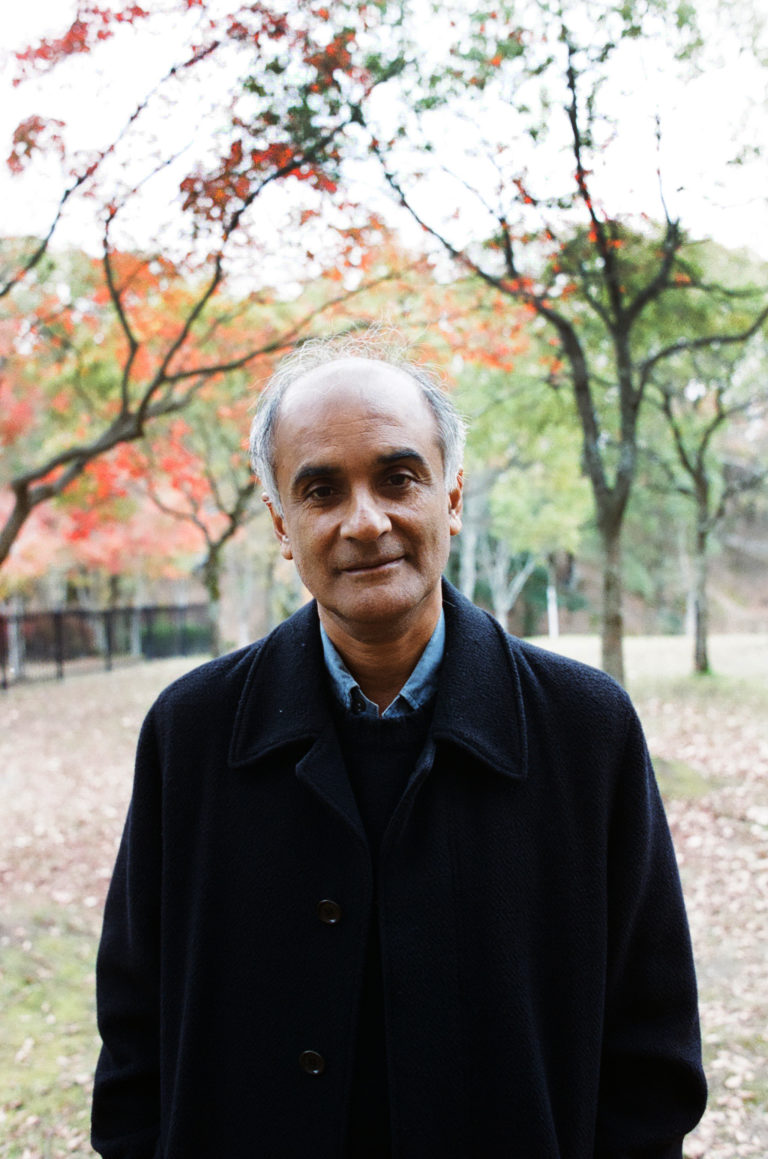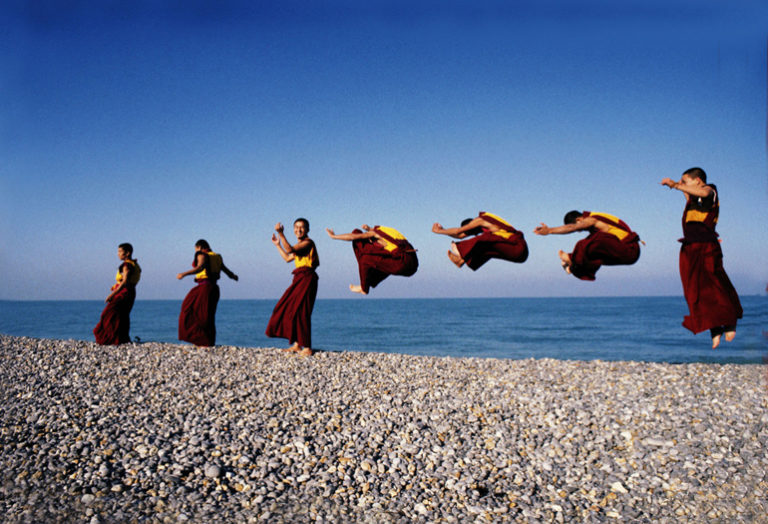Her unconventional studies have long suggested what neuroscience is now revealing: Our experiences are formed by the words and ideas we attach to them. Naming something play rather than work — or exercise rather than labor — can mean the difference between delight and drudgery, fatigue or weight loss. What makes a vacation a vacation is not only a change of scenery, but the fact that we let go of the mindless everyday illusion that we are in control. Ellen Langer says mindfulness is achievable without meditation or yoga. She defines it as “the simple act of actively noticing things.”
Contemplation & Prayer
Featured Items
Before Pope Francis, James Martin was perhaps the best-loved Jesuit in American life. He’s followed the calling of St. Ignatius of Loyola, the founder of the Jesuit order, to “find God in all things” — and for him that means being a writer of books, an editor of America magazine, and a wise and witty presence on Twitter, Facebook, and Instagram. To delve into Fr. Martin’s way of being in the world is to discover the “spiritual exercises” St. Ignatius designed to be accessible to everyone more than six centuries ago.
View
- List View
- Standard View
- Grid View
30 Results
Filters
We love the theologian Kate Bowler’s allergy to every platitude and her wisdom and wit about the strange and messy fullness of what it means to be in a human body. She’s best known for her 2018 book Everything Happens for a Reason (And Other Lies I’ve Loved) — a poetic and powerful reflection on learning at age 35 that she had Stage IV colon cancer.
From a reset on how to think about aging, to the new reality in our time of living with cancer as a chronic illness, to the telling of truths to our young, this beautiful conversation is full of the vividly whole humanity that Kate Bowler singularly embodies.
(Also, as you’ll hear, if she hadn’t become a theologian, she might have been a stand-up comedian.)
Krista and Kate spoke as part of the 2023 Aspen Ideas Festival.
“I like it much better than ‘religious’ or ‘spiritual’ — to be a seeker after the sacred or the holy, which ends up for me being the really real.”
– Rev. Barbara Brown Taylor
From Krista, about this week’s show:
It’s fascinating to trace the arc of spiritual searching and religious belonging in my lifetime. The Episcopal priest and public theologian Barbara Brown Taylor was one of the people I started learning about when I left diplomacy to study theology in the early 1990s. At that time, she was leading a small church in Georgia. And she preached the most extraordinary sermons, and turned them into books read far and wide. Then in 2006, she wrote Leaving Church — about her decision to leave her life of congregational ministry, finding other ways to stay, as she’s written, “alive and alert to the holy communion of the human condition, which takes place on more altars than anyone can count.”
She’s written other books since, with titles like An Altar in the World, Learning to Walk in the Dark, and Holy Envy: Finding God in the Faith of Others. Being in the presence of Barbara Brown Taylor’s wonderfully wise and meandering mind and spirit, after all these years of knowing her voice in the world, is a true joy. I might even use a religious word — it feels like a “blessing.” And this is not a conversation about the decline of church or about more and more people being “spiritual but not religious.” We both agree that this often-repeated phrase is not an adequate way of seeing the human hunger for holiness. This is as alive as it has ever been in our time — even if it is shape-shifting in ways my Southern Baptist and Barbara’s Catholic and Methodist forebears could never have imagined.
A few years ago, Krista hosted an event in Detroit — a city in flux — on the theme of raising children. The conversation that resulted with the Jewish-Buddhist teacher and psychotherapist Sylvia Boorstein has been a companion to her and to many from that day forward. Here it is again as an offering for Mother’s Day — in a world still and again in flux, and where the matter of raising new human beings feels as complicated as ever before. Sylvia gifts us this teaching: that nurturing children’s inner lives can be woven into the fabric of our days — and that nurturing ourselves is also good for the children and everyone else in our lives.
The Venerable Thich Nhat Hanh, revered Zen master, teacher, and poet, died on January 22, 2022, in his native Vietnam. Brother Thay, as he was known by his community and students, transmuted what he had experienced of chaos and bloodshed in his country and his life into an ability to speak with equal measures directness and compassion to the many conflicts and bewilderments of contemporary life. Martin Luther King Jr. nominated him for the Nobel Peace Prize. He was a great teacher of the wonderful practice of “walking meditation.” He taught a way of living to face suffering, fear, and violence inside and beyond ourselves and yet to become “fresh, solid, and free.” Krista sat with him for this rare conversation in the early years of this show, and it has touched many. It is astonishing to re-experience the deep, enduring wisdom this monk leaves for our world now.
December 30, 2021
Gordon Hempton
Silence and the Presence of Everything
Acoustic ecologist Gordon Hempton collects sounds from around the world. He’s recorded inside Sitka spruce logs in the Pacific Northwest, thunder in the Kalahari Desert, and dawn breaking across six continents. An attentive listener, he says silence is an endangered species on the verge of extinction. He defines real quiet as presence — not an absence of sound but an absence of noise. We take in the world through his ears.
December 23, 2021
Jeff Chu
A Life of Holy Curiosity
In Friendship with Rachel Held Evans
Here we are in a religiously-infused season — and in a world in which more and more of us experience ourselves to be religious nomads, misfits, even refugees. This deep reality of our life together is often simplified in analyses of the decline of traditional religious identity, of the rise of the spiritual-but-not-religious. Yet there is abundantly, alongside all of that, a rising theological and liturgical searching, a passionate calling towards service that echoes the heart of the great traditions. This is nowhere more true than around the boundaries of Christianity. And no person has given more winsome voice to it than Rachel Held Evans, who died suddenly at the age of 37 in 2019. Now her dear friend, journalist and preacher Jeff Chu, has midwifed her unfinished last book, Wholehearted Faith, into the world. He’s Krista’s wonderful conversation partner this hour — articulating a spacious understanding of God and grief, searching and belonging, for this changed world Rachel did not live to see, but speaks to still.
October 28, 2021
Pádraig Ó Tuama and Marilyn Nelson
“So let us pick up the stones over which we stumble, friends, and build altars”
Where to turn to find my place of standing when it feels like the world is on fire? This question surfaced in a public conversation Krista had just a couple of years ago with Pádraig Ó Tuama and Marilyn Nelson, two poet-contemplatives. Pádraig weaves together social healing, poetry, and theology. Marilyn is a lyrical excavator of stories that would rather stay hidden — yet as she coaxes them into the light, they lead to new life. This conversation is a pleasure and balm, and a reminder that the ruptures and unease and reckonings of what we call “this moment” were all before us before the pandemic. Pádraig and Marilyn’s offerings are beyond wise, and distinctly tender and powerful for this now.
October 15, 2020
Rev. Otis Moss III
The Sound of the Genuine: Traversing 2020 with ‘the Mystic of the Movement’ Howard Thurman
An hour to sit with, and be filled. Two voices — one from the last century, one from ours — who inspire inward contemplation as an essential part of meeting the challenges in the world. Howard Thurman’s book Jesus and the Disinherited, it was said, was carried by Martin Luther King Jr. alongside the Bible and the U.S. Constitution. Thurman is remembered as a philosopher and theologian, a moral anchor, a contemplative, a prophet, and pastor to the civil rights leaders. Rev. Otis Moss III, himself the son of one of those leaders, is a bridge to Thurman’s resonance in the present day, and between the Black freedom movements then and now.
September 10, 2020
angel Kyodo williams
The World Is Our Field of Practice
This prophetic conversation, which Rev. angel Kyodo williams had with Krista in 2018, is an invitation to imagine and nourish the transformative potential of this moment — toward human wholeness. Rev. angel is an esteemed Zen priest and the second Black woman recognized as a teacher in the Japanese Zen lineage. She is one of our wisest voices on social evolution and the spiritual aspect of social healing.
We’re in a season of renewal in the natural world and in spiritual traditions; both Easter and Passover this year are utterly transformed. It’s drawing us back to the wisdom of Br. David Steindl-Rast, who makes useful distinctions around experiences that are life-giving and resilience-making yet can feel absurd to speak of in a moment like this. A Benedictine monk for over 60 years, Steindl-Rast was formed by 20th-century catastrophes. He calls joy “the happiness that doesn’t depend on what happens.” And his gratefulness is not an easy gratitude or thanksgiving — but a full-blooded, reality-based practice and choice.
Rabbi Lawrence Kushner is a long-time student and articulator of the mysteries and messages of Kabbalah, the Jewish mystical tradition. Kushner says mysticism tends to appear when religion — whatever the tradition — becomes too formal and logical. “The minute mysticism becomes permissible, acceptable, possible, it’s an immediate threat to organized religious structures,” he says. “Because what mysticism does is it gives everybody direct unmediated personal access to God.” He is influenced by the Jewish historian Gershom Scholem, who resurrected Kabbalah from obscurity in the 20th century and made it accessible to modern people.
Pico Iyer is one of our most eloquent explorers of what he calls the “inner world” — in himself and in the 21st century world at large. The journalist and novelist travels the globe from Ethiopia to North Korea and lives in Japan. But he also experiences a remote Benedictine hermitage as his second home, retreating there many times each year. In this intimate conversation, we explore the discoveries he’s making and his practice of “the art of stillness.”
Mirabai Bush works at an emerging 21st century intersection of industry, social healing, and diverse contemplative practices. Raised Catholic with Joan of Arc as her hero, she is one of the people who brought Buddhism to the West from India in the 1970s. She is called in to work with educators and judges, social activists and soldiers. She helped create Google’s popular employee program, Search Inside Yourself. Her life tells a fascinating narrative of our time: the rediscovery of contemplative practices, in many forms and from many traditions, in the secular thick of modern culture.
Her unconventional studies have long suggested what neuroscience is now revealing: Our experiences are formed by the words and ideas we attach to them. Naming something play rather than work — or exercise rather than labor — can mean the difference between delight and drudgery, fatigue or weight loss. What makes a vacation a vacation is not only a change of scenery, but the fact that we let go of the mindless everyday illusion that we are in control. Ellen Langer says mindfulness is achievable without meditation or yoga. She defines it as “the simple act of actively noticing things.”
It’s easy to despair at all the bad news and horrific pictures that come at us daily. But Roshi Joan Halifax says this is a form of empathy that works against us. There’s such a thing as pathological altruism. This zen abbot and medical anthropologist has nourishing wisdom as we face suffering in the world.
A French-born Tibetan Buddhist monk and a central figure in the Dalai Lama’s dialogue with scientists, Matthieu Ricard was dubbed “The Happiest Man in the World” after his brain was imaged. But he resists this label. In his writing and in his life, he explores happiness not as pleasurable feeling but as a way of being that gives you the resources to deal with the ups and downs of life and that encompasses many emotional states, including sadness. We take in Matthieu Ricard’s practical teachings for cultivating inner strength, joy, and direction.
The renowned actor as you’ve never heard him before. He has appeared in over 100 films, including Apocalypse Now. He’s best known on television as President Bartlet in The West Wing. But Martin Sheen, born and still legally named Ramón Estévez, has had another lesser-known life as a spiritual seeker and activist. He returned to a deep and joyful Catholic faith after a crisis at the height of his fame in mid-life. He’s been arrested over 60 times in vigils and protests. “Piety is something you do alone,” he says. “True freedom, spirituality, can only be achieved in community.”
Before Pope Francis, James Martin was perhaps the best-loved Jesuit in American life. He’s followed the calling of St. Ignatius of Loyola, the founder of the Jesuit order, to “find God in all things” — and for him that means being a writer of books, an editor of America magazine, and a wise and witty presence on Twitter, Facebook, and Instagram. To delve into Fr. Martin’s way of being in the world is to discover the “spiritual exercises” St. Ignatius designed to be accessible to everyone more than six centuries ago.
The Pause
Join our constellation of listening and living.
The Pause is a monthly Saturday morning companion to all things On Being, with heads-up on new episodes, special offerings, event invitations, recommendations, and reflections from Krista all year round.
Search results for “”
View
- List View
- Standard View
- Grid View
Filters

